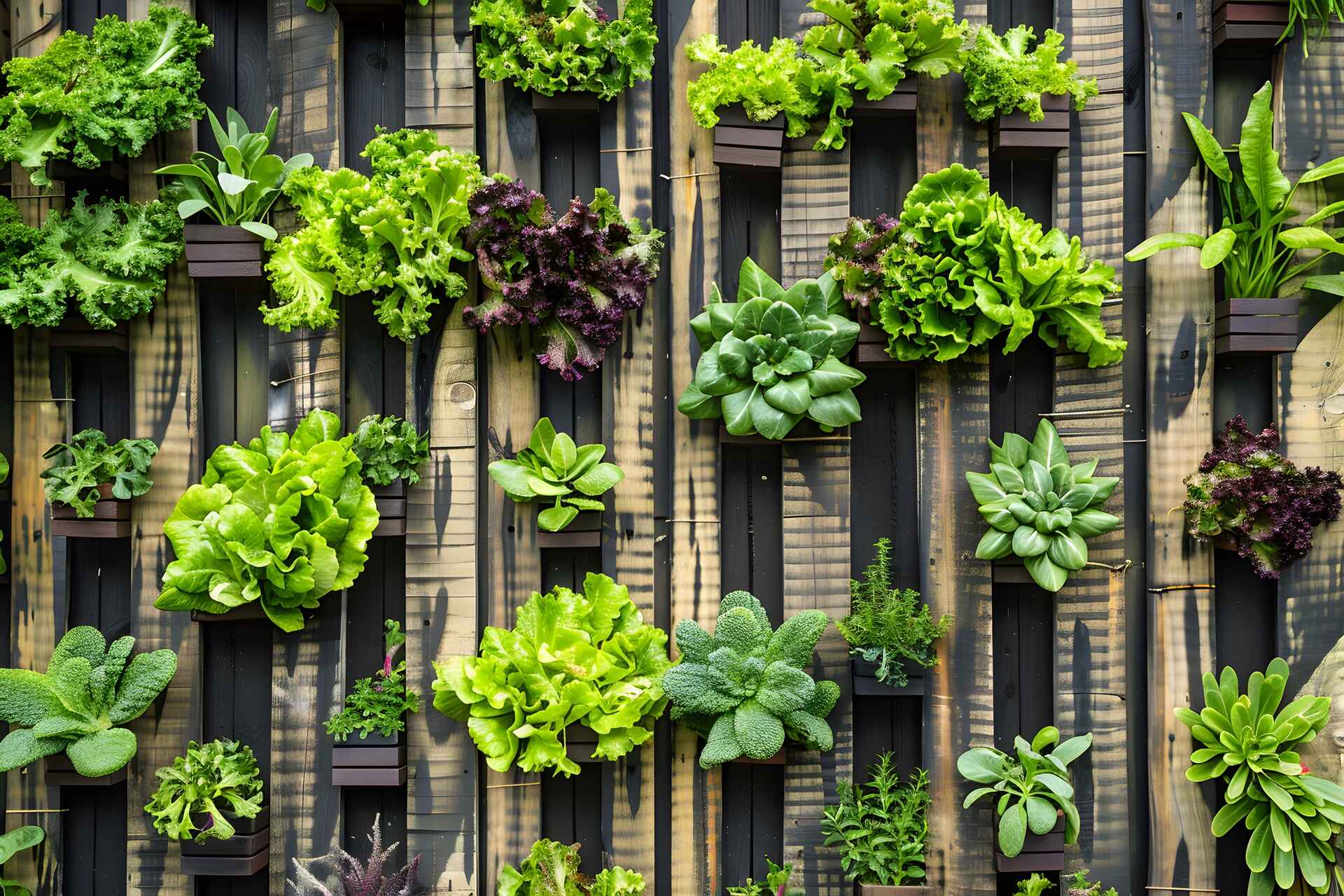What Are the Advantages of Urban Agriculture?
Read this article to discover the benefits of urban agriculture, from boosting food production to promoting sustainability and improving community health.
.webp)
Urban agriculture can benefit a city's food production, economy, environment, and community. Urban farms can improve public health and well-being. Using modern technology, urban farming can also make your city more sustainable.
If you live in a sprawling city, you might have noticed there's limited access to fresh food. A lack of community spaces is another common issue in big cities.
Cities also face unique environmental challenges. Poor air quality and the heat island effect are just some of the examples.
Urban agriculture offers a solution to many of these problems.
Turning rooftops, vacant lots, and other urban spaces into productive farms helps grow food in cities.
These efforts provide fresh produce and bring a range of benefits. This includes improving food security, boosting local economies, supporting the environment, and more.
In this article, we'll go through all the advantages of urban agriculture.
The Benefits of Urban Agriculture
Urban farming is also known as urban agriculture. It's the practice of growing, producing, and distributing food in densely populated areas.
Urban agriculture involves a variety of farming techniques to grow crops and raise animals. The goal is to produce agricultural products within urban environments.
This can take place in:
- Community gardens
- Rooftop gardens
- Indoor vertical farms
- Vacant lots
- Greenhouses
- Balconies and backyards
Urban agriculture offers practical solutions to address key issues often found in big cities. The most important benefits of urban agriculture include:
- Food security and access
- Economic benefits
- Environmental advantages
- Community development
- Health and well-being
- Innovation and sustainability

Food Security and Access
There will always be a need for locally produced fresh food, but finding fresh products in big cities is becoming increasingly challenging.
That's why we can't understate the importance of urban agriculture.
Urban agriculture improves food security. With urban farms, fresh, locally grown food becomes more available in cities.
This is very important in areas known as "food deserts." Access to affordable and nutritious food is limited in these areas.
Urban farming makes it easier for residents to access fresh produce by growing food closer to where they live.
This reduces the need to rely on distant food supply chains.
Food security is especially important in emergencies. During disruptions like food shortages or natural disasters, urban farms become vital lifelines.
Economic Benefits
Urban agriculture also comes with economic benefits.
Urban agriculture can stimulate local economies by creating jobs in:
- Urban farming
- Food distribution
- Farmer's markets
- Food processing
- Logistics
It can also provide opportunities for entrepreneurs to start small-scale farming businesses.
Community gardens, commercial urban farms, and vertical farming projects create jobs for local residents.
This is great for low-income areas where employment options may be limited.
Lower food costs can help families save money on groceries. Locally produced, affordable food alternatives can reduce household expenses.
By producing food locally, cities become less dependent on external food supply chains.
These chains are always in danger of being disrupted. For example, by transportation issues, climate change, or global economic instability.
Environmental Advantages
The positive effects of urban agriculture include its impact on the environment.
Here are some ways urban agriculture can benefit the environment:
- Sustainable agriculture
- Reduced carbon footprint
- Improved air quality and climate regulation
- Water management
- Biodiversity and ecosystem services
- Waste reduction and management
Urban agriculture can contribute to more sustainable food systems. Cities can decrease their carbon footprint by promoting local food production.
It also reduces the carbon footprint associated with long-distance food transportation (food miles). The need for packaging and plastic waste is significantly reduced.
Urban farms often use organic farming methods, minimising the need for harmful pesticides and chemicals.

They also help make cities greener. Green spaces can reduce the heat island effect and absorb carbon dioxide.
Plants in urban farms absorb pollutants, enhancing air quality.
By turning spaces like rooftops, vacant lots, and vertical spaces into productive areas, urban agriculture can improve urban biodiversity.
Community Development
Urban agriculture can also be good for the community.
Community gardens and urban farms often become hubs.
Individuals from diverse backgrounds and generations can come together to grow food, share knowledge, and build stronger social bonds.
It also provides educational opportunities for healthy eating.
Gardening workshops, school programs, and vocational training teach community members about sustainable food production.
These spaces help create social connections between neighbours, creating a sense of belonging and community engagement.
Urban farms can also serve as spaces for cultural exchange and intergenerational learning.
Urban agriculture empowers communities by giving residents control over their food production.
Community-led farms and gardens allow people to take charge of their local food systems. This contributes to food security and self-sufficiency.
Health and Well-Being
There are many health benefits of urban agriculture.
Access to fresh produce from urban farms improves public health and well-being.
Consuming locally grown fruits and vegetables can lead to better diets.
It can also lead to reduced risks of diet-related diseases. For instance, obesity, diabetes, and cardiovascular issues.
Urban farming also promotes physical activity.

Participants in urban gardens engage in planting, weeding, and harvesting. These activities contribute to a more active lifestyle.
These green spaces can have mental health benefits. They offer a calming, therapeutic environment for city dwellers.
People can come to these green spaces to decompress and connect with nature.
Interacting with plants offers mental health perks, lowering stress and anxiety.
Farming activities contribute to an improvement in psychological well-being. They offer mindfulness that nurtures both body and mind.
Innovation and Sustainability
Urban agriculture encourages innovation and sustainability.
Urban farming is still an evolving field. New farming technologies and methods are being developed all the time.
Some of these innovations include vertical farming, aquaponics, and hydroponics. The use of sensors or automation allows for higher productivity in limited spaces.
They reduce resource use (such as water and land) while maximising output.
Urban farms often become showcases for:
- Sustainable living
- Educating city residents about waste reduction
- Composting
- Water conservation
- Renewable energy
This focus on sustainable practices in urban farming can help cities become more self-sufficient.
They can also become resilient to future challenges. For instance, climate change and food supply disruptions.
Exploring the Importance of Urban Agriculture
Urban agriculture has a wide array of benefits. All these benefits collectively contribute to stronger and healthier urban communities.
Urban farming helps the economy, environment, and community in big cities. They help grow local food production and inspire the use of new technologies.
By supporting urban farming projects, we can contribute to a sustainable urban future.
If you're interested in starting an urban farm, Evergreen Infrastructure can help you. We can help you create a thriving edible garden, bringing fresh food closer to you.
If you want to know more about our urban farming projects, feel free to reach out to us.
{{cta}}
We create green oases in urban settings
We'd love to discuss how we can partner to bring innovative, sustainable solutions to your urban environment.
.webp)
.webp)
.webp)


